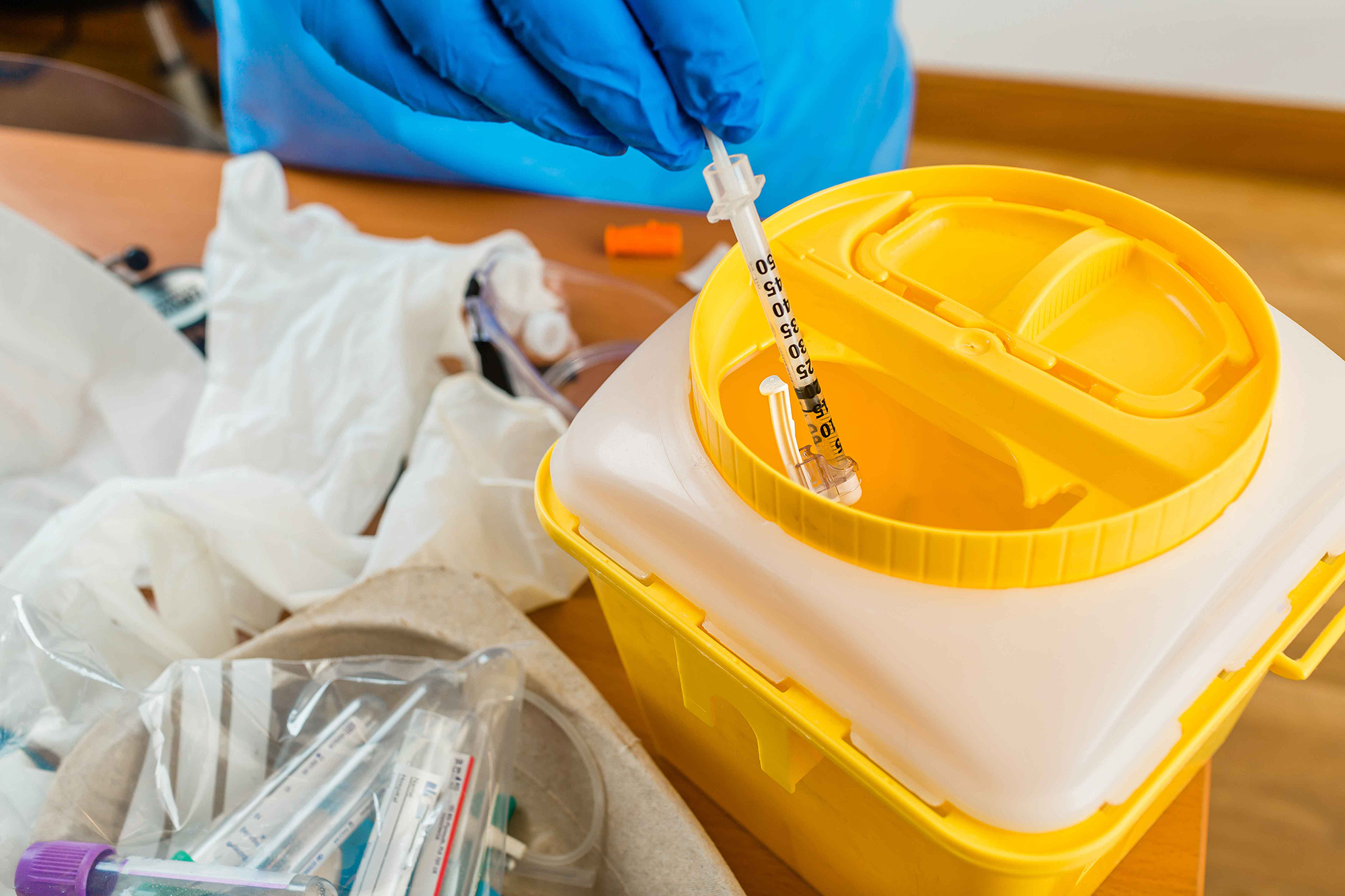Streamlined Medical Waste Disposal Services: Concern for Public Health
Streamlined Medical Waste Disposal Services: Concern for Public Health
Blog Article
Navigating Medical Garbage Disposal: Essential Services for Health Care Facilities
In the complex landscape of medical care procedures, the administration of clinical waste is a crucial aspect that demands meticulous attention. Healthcare facilities, whether large medical facilities or little centers, are left with the responsibility of handling, dealing with, and dealing with a broad array of medical waste streams. The intricacies associated with navigating via the regulative demands, guaranteeing proper waste partition, and carrying out risk-free collection and transportation procedures are extremely important. Comprehending the essential solutions that support clinical garbage disposal is not simply a matter of compliance yet likewise a fundamental component in safeguarding public wellness and ecological well-being. The ins and outs of this process are essential for health care facilities, and the competence provided in this world plays an essential role in keeping the stability of healthcare systems.
Regulatory Compliance Assistance
For medical care facilities, making certain regulatory conformity support is vital to preserve appropriate handling and disposal of clinical waste. Adhering to guidelines stated by companies such as the Environmental Protection Firm (EPA) and the Occupational Safety and Health Administration (OSHA) is critical to avoid environmental contamination, secure public health and wellness, and stay clear of prospective lawful consequences. Regulatory conformity assistance provides healthcare facilities with assistance on just how to correctly segregate, store, transport, and dispose of different kinds of clinical waste according to neighborhood, state, and government regulations. This support includes help in developing and executing comprehensive waste management plans, conducting normal team training sessions, and performing audits to ensure continuous conformity. By partnering with governing conformity specialists, health care facilities can stay updated on developing policies, reduce dangers related to incorrect waste disposal, and eventually contribute to a safer and much more sustainable atmosphere for all.
Waste Partition Guidance

Medical care centers should supply clear guidelines and training to team on exactly how to set apart waste properly. This includes dividing basic waste from unsafe products such as sharps, transmittable waste, pharmaceuticals, and chemical waste. Color-coded bins, labels, and signage are generally used to aid in waste segregation practices. Routine audits and surveillance of waste partition procedures are crucial to identify any problems and make required enhancements.
Collection and Transportation Services

Correct collection and transport services are essential parts of the medical waste disposal procedure in health care facilities. These solutions guarantee that hazardous products are managed safely and in conformity with policies to protect both the environment and public wellness. Health care facilities rely upon specialized waste monitoring business to offer reliable collection and transport services tailored to their needs.
Clinical waste collection includes setting apart different types of waste at the factor of generation, utilizing color-coded bins or bags to differentiate between basic, unsafe, pharmaceutical, and other waste streams. Educated workers must do this task to avoid contamination and make sure correct disposal. As soon as gathered, the waste is carried in specialized automobiles equipped to take care of dangerous materials securely. These automobiles abide by strict security criteria and follow assigned paths to licensed treatment centers for disposal via methods such as sterilization, incineration, or landfilling.
Treatment and Disposal Solutions
In the realm of medical waste disposal for health care facilities, after the critical phase of collection and transport solutions, the emphasis moves in the direction of implementing effective therapy and disposal solutions. Treatment services usually involve processes such as autoclaving, which makes use of steam under pressure to sanitize the waste. This technique is frequently made use of for transmittable waste that has to be made non-hazardous before disposal. One more common therapy technique is incineration, where waste is subjected to heats in regulated setups to reduce its quantity and remove pathogens.
Disposal solutions incorporate the final action in the medical waste management process. Facilities might opt for garbage dump disposal, where treated waste is carefully transferred in marked areas. this link Medical Waste Disposal Services. Conversely, healthcare centers can choose to use waste-to-energy centers, which blaze waste to generate power. Recycling and source recovery are also getting traction as sustainable disposal alternatives for specific kinds of medical waste materials.
Reliable therapy and disposal remedies are vital in ensuring compliance with policies and protecting public health and wellness and the setting. Healthcare centers must very carefully examine and choose proper techniques that straighten with their waste administration objectives and sustainability campaigns.
Staff Training and Education

To effectively manage medical garbage disposal in health care facilities, extensive team training and education and learning play a crucial function in ensuring adherence to governing requirements and keeping a risk-free environment. Correct training furnishes staff with the expertise and abilities needed to take care of different kinds of clinical waste, segregate them correctly, and package them firmly for disposal. By informing staff members on the dangers associated with inappropriate handling of medical waste, centers can decrease the chance of accidents, contamination, and regulatory infractions.

Verdict
Finally, health care facilities count on essential clinical waste disposal solutions to guarantee regulative compliance, correct waste segregation, secure collection and transport, effective therapy and disposal, as well as staff training and education and learning. These solutions play an important duty in keeping the wellness and security of both health care workers and the public, highlighting the significance of appropriate management of medical waste in medical care setups.
For health care centers, making sure regulative compliance assistance is essential to maintain proper handling and disposal of medical waste. Waste segregation entails classifying different types of medical waste to guarantee appropriate handling, therapy, and disposal. This includes dividing basic waste from harmful materials such as sharps, transmittable waste, drugs, and chemical waste.Medical waste collection entails setting apart different types of waste at the factor of generation, utilizing color-coded bags best site or containers to my site identify between basic, unsafe, pharmaceutical, and other waste streams.In the world of clinical waste disposal for medical care facilities, after the vital stage of collection and transport services, the emphasis changes towards implementing reliable treatment and disposal remedies.
Report this page